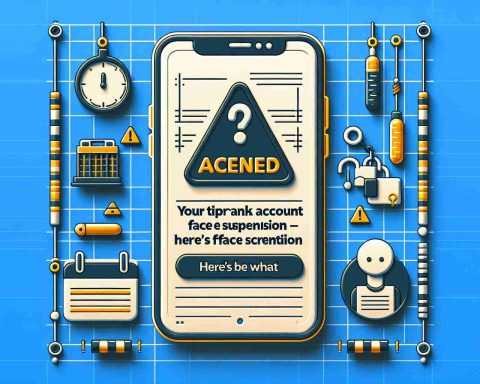The realm of government operations is on the brink of transformation as tech visionary Elon Musk delves into the potential benefits of blockchain technology. Reports indicate that Musk is actively evaluating this innovative approach for enhancing the Department of Government Efficiency.
Blockchain, known for its security and transparency, could revolutionize how government sectors operate. With its decentralized nature, it promises to streamline processes and eliminate inefficiencies, potentially resulting in substantial cost savings and increased public trust. Sources reveal that Musk’s interest stems from a desire to bolster transparency and accountability in governmental transactions.
Incorporating blockchain could also lead to improved data management, making it easier for departments to collaborate and share information seamlessly. The prospect of secure digital identities and efficient record-keeping systems has caught the attention of policymakers who are eager to adopt cutting-edge technologies.
Furthermore, this shift may encourage other sectors to explore blockchain’s applications, fostering a culture of innovation and progressive governance. As discussions unfold, the question remains: can Musk’s vision set a precedent for future governmental frameworks?
As we stand at the intersection of technology and public service, all eyes are on Musk and his ambitious exploration of blockchain’s role in creating a more efficient government. The implications of this initiative could reverberate across the world, heralding a new era of digital administration.
Transformative Implications of Blockchain in Government Operations
The integration of blockchain technology in government operations, as pursued by Elon Musk, could have profound implications not just within the public sector, but also across society and the global economy. By enhancing transparency and accountability, blockchain holds the potential to rebuild public trust in governmental institutions that have often been plagued by corruption and inefficiency. If successfully implemented, this could signal a shift towards a more engaged and participatory democratic process.
On a broader scale, the adoption of blockchain may catalyze a cultural shift toward embracing technological innovation in governance. As governments worldwide grapple with modern challenges—from data privacy to inefficient bureaucratic processes—Musk’s initiative offers a sustainable model that could inspire similar endeavors globally. Countries that adopt these technologies may become testaments to the efficacy of innovative governance, positioning themselves as leaders in the digital economy.
Environmentally, the impact of blockchain technology could also be significant. While the energy consumption of traditional blockchain models has raised concerns, advancements in the technology could lead to more eco-friendly practices in data management. Moving towards decentralized ledgers may reduce reliance on physical infrastructure, potentially lowering carbon footprints across various governmental functions.
In looking forward, the long-term significance of this initiative cannot be underestimated. Should blockchain significantly reshape public sector operations, it may pave the way for other technological advancements, fundamentally altering how citizens interact with their governments and each other. In a world hungry for reform, the potential effects could be far-reaching and transformative, leading us into a future where efficient, transparent, and accountable governance becomes the new standard.
Elon Musk’s Blockchain Endeavor: Transforming Government Efficiency
As technology evolves, the intersection of innovative solutions and government operations becomes increasingly relevant. Elon Musk’s exploration of blockchain technology for the Department of Government Efficiency is set to redefine transparency, accountability, and collaboration within governmental frameworks.
What is Blockchain Technology?
Blockchain is a distributed ledger technology that securely records transactions across multiple computers. Its key features include decentralization, immutability, and transparency. These characteristics make it an ideal candidate for addressing long-standing inefficiencies within government operations.
Benefits of Blockchain for Government
1. Enhanced Transparency and Accountability: Blockchain’s permanent and transparent record-keeping can mitigate corruption and enhance accountability within governmental transactions.
2. Cost Savings: By streamlining processes and reducing bureaucratic layers, governments could see significant reductions in operational costs.
3. Improved Data Management: Blockchain enables secure and efficient data sharing among various departments, facilitating better collaboration.
4. Secure Digital Identities: A blockchain-based identity system could ensure that citizens’ identities are protected while allowing for seamless access to services.
Use Cases
– Voting Systems: Blockchain could be used to create tamper-proof voting systems, increasing voter trust in election outcomes.
– Public Records: Health, property, and criminal records could be securely stored, ensuring that data is both accurate and easily accessible.
– Government Aid Distribution: Utilizing blockchain for tracking aid distribution can enhance transparency and reduce fraud.
Limitations and Challenges
– Scalability: Blockchain solutions need to be designed to handle the vast amount of data generated by government operations.
– Integration: There may be challenges in integrating blockchain with existing systems and infrastructures.
– Regulatory Considerations: Legal frameworks will need to be adapted to recognize blockchain record-keeping as valid.
Comparison to Traditional Systems
| Feature | Traditional Systems | Blockchain Systems |
|———————–|—————————————-|—————————————–|
| Data Management | Centralized databases | Decentralized ledgers |
| Transparency | Limited visibility | High transparency |
| Security | Vulnerable to hacks | Highly secure with cryptographic protocols |
| Cost Efficiency | Often costly due to inefficiencies | Potential for significant savings |
Trends and Innovations in Government Tech
As more government entities explore digital solutions, blockchain is gaining traction as a pioneering technology. The current trend is towards integrating various digital technologies, including artificial intelligence and cloud computing, to complement blockchain initiatives.
Predictions for Government Efficiency
Experts predict that if successful, Musk’s blockchain initiative could inspire similar movements globally, ultimately leading to a shift toward more efficient, transparent governance models. Countries willing to embrace such innovations will likely set precedents for future governmental efficiency standards.
Conclusion
Elon Musk’s venture into blockchain technology for enhancing governmental functions is a promising development in the realm of public service. As technology continues to shape the way governments operate, the potential for improved efficiency holds considerable implications for societal trust in public institutions.
For further insights into blockchain applications in various sectors, visit IBM Blockchain to learn more.










